The team behind island’s Covid helpline
THE last couple of months have been relatively quiet for the coronavirus helpline, but as summer turned to autumn and the schools went back, so did the number of calls to the helpline increase.
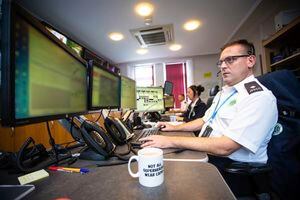
As part of International Control Room Week, the Guernsey Press was invited along to see the service at work and to meet those who are on-hand to answer islanders’ queries about the virus.
The helpline was set up in March as the island prepared to enter lockdown and its role is chiefly to assess the symptoms of callers and, if necessary, refer them for a test.
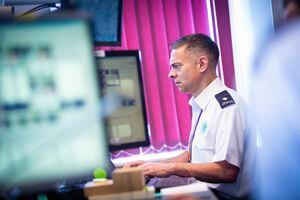
Based at the Town Fire Station and run as part of the Joint Emergency Services Control Centre, it also offers information about how long someone needs to isolate and, where possible, general questions about which countries are safer than others.
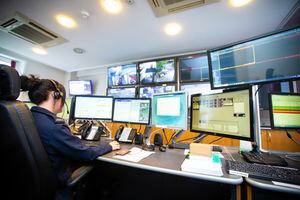
Occasionally calls are referred to a separate, non-medical, line which was set up at the same time, and this is operated from Frossard House.
On the day we visited, a team of four had been answering the phones non-stop since they started work at 8am and it was only by about 11.30 that things calmed down.
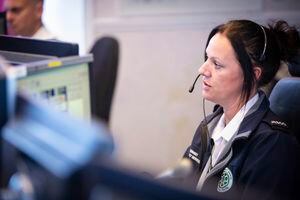
‘We set this up on Friday 6 March,’ said team leader Nigel Gill, ‘and we’ve just answered our 15,600th call.’
At the moment there are between 90 and 100 calls a day, between 8am and 4pm when the team man the hotline.
This is still some way short of the peak of enquiries, when they were fielding 320 calls a day. ‘It was a massive challenge at first,’ said Mr Gill. ‘There was a lot of information to take on board.’
As of mid-October, 600 people had been forwarded to the testing team.
All of these individuals are logged, as are all calls received, with the log files being updated regularly throughout the day and passed to the Public Health department.
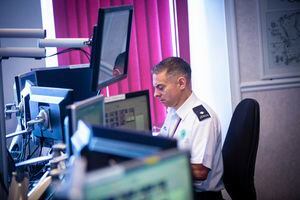
The hours of cover have changed alongside the demand, with the centre originally being operated in two shifts. More recently it dropped down to having just two people on all day, but as demand has started to creep up again so the helpline is back to a team of four.
‘At the moment our main bulk of calls is dealing with school children and teachers,’ said Mr Gill. He anticipated numbers rising as flu season began.
Although the fire station-based team currently step down at 4pm, calls are answered out of hours at the Jescc main office, although Mr Gill said very few calls usually come in overnight, maybe four or five.
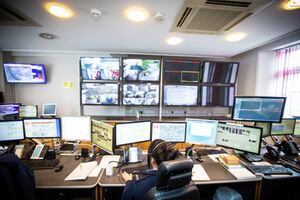
If the need arises, the helpline’s hours will be extended and more staff members brought in.
Hardware used at the centre is the same used at Jescc’s main offices at the police station, and if there is ever a problem with the system at the station, Jescc can easily operate from the fire station.
The fire station centre is also used for training new staff members.
One of the other people on duty the day we visited was Kim Guest, who joined Jescc last September and who has been with the helpline for two months: ‘A lot of people at the moment have sore throats and aches,’ she said, after sending another person for testing.
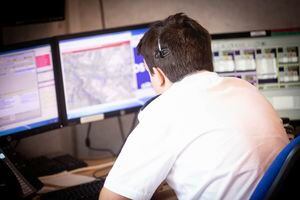
She was expecting to be swapped back into the main team at the police station sooner rather than later and said it was important to keep her skills in dealing with the emergency calls taken by Jescc central.
People who call the helpline worried about their health are asked a series of questions about their symptoms and these are taken from a list that the operator has in front of them.
Even if someone has just one of the major symptoms, the chances are they will be referred for a test: ‘Even if you have minor symptoms – call us,’ said Mr Gill.





